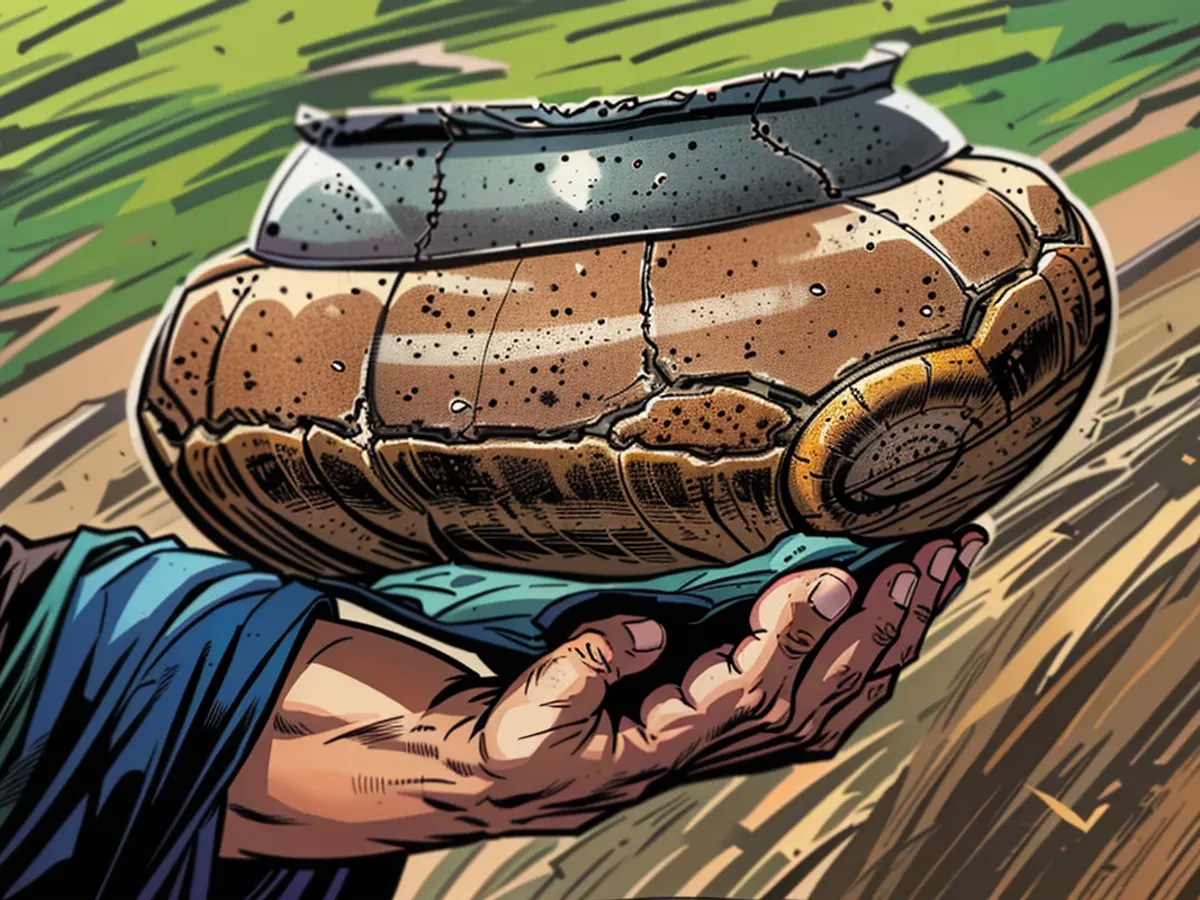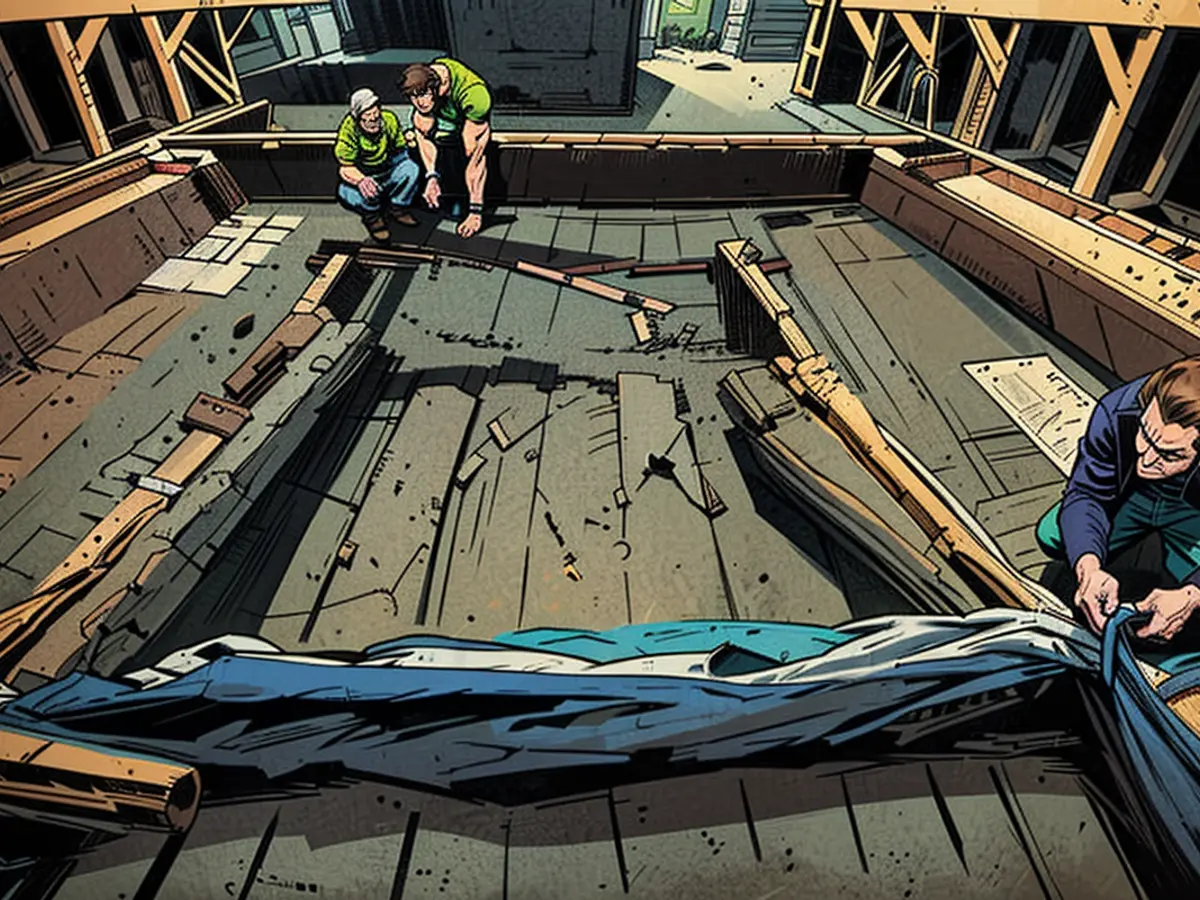Uncovered Intact Celtic Funeral Structure Unveiled
In a surprising turn of events, archaeologists in Baden-Württemberg have stumbled upon an astonishing find: a 2600-year-old, well-preserved oak wooden burial chamber during excavations near the formidable fortification walls of Heuneburg in Riedlingen. Initial investigations suggest this ancient grave is located at the heart of a colossal burial mound with a staggering diameter of 65 meters. Dirk Krausse, the long-serving head of research at Heuneburg, mentioned this in a recent press release.
At this point, it's uncertain if the deceased was a man or woman. Krausse revealed that the archaeologists found well-mummified human skeleton bones, estimated to be from a 15 to 20-year-old individual, who most likely belonged to the male sex. The burial site, however, was ransacked shortly after its construction according to Krausse's report.
Plans are in motion to further explore the burial chamber. First, the wood needs to be dried out from its cells. Then, the process of freeze-drying the wood will begin, requiring approximately three years according to Krausse. Once this process is complete, the burial chamber will be reassembled in a new visitor center at Heuneburg, making it accessible for public viewing.
The burial chamber found just inches beneath the soil
What makes this discovery even more intriguing is that the archaeologists discovered the colossal oak wooden burial chamber only 70 centimeters below the ground surface. Wood typically decays within a few years to decades in such conditions. As Krausse points out, a completely preserved Celtic burial chamber of this kind has seldom been discovered before in Germany - the only known example is the one found in 1890 in Villingen, Black Forest. Regrettably, it did not have any proper documentation at the time and could only be partially conserved later on.
The Celts were a significant European ethnic group that thrived around 2000 years ago. Their culture and day-to-day activities remain a mystery as they didn't leave behind any written records. The first glimpses of a Celtic culture date back to the 8th century BC. Ultimately, the Celts vanished around the time of Christ. Their primary settlement region encompassed southern Germany and eastern France.
The historical significance of this find cannot be overstated, as the discovery of such a well-preserved Celtic burial chamber is incredibly rare in Germany. The oak wooden burial chamber, dating back over 2600 years, was found remarkably close to the surface, offering unique insights into the ancient burial practices of the Celts.








